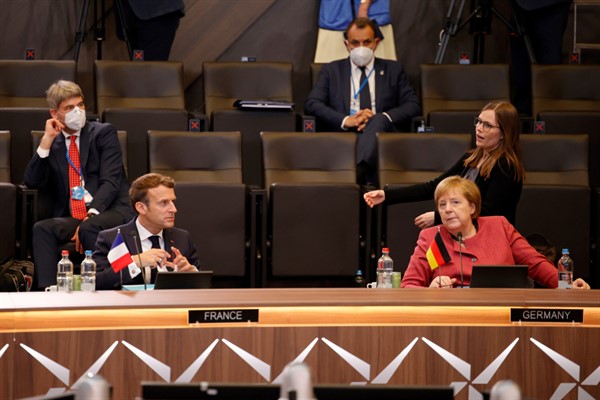Editor’s Note: This is the web version of our subscriber-only weekly newsletter, China Note, which includes a look at the week’s top stories and best reads from and about China. Subscribe to receive it by email every Wednesday. If you’re already a subscriber, adjust your newsletter settings to receive it directly to your email inbox.
Europe’s souring on China has been long in the making, but the unprecedented broadsides from leaders of the G-7 bloc and NATO this week cemented a tougher collective trans-Atlantic stance against Beijing. “China’s stated ambitions and assertive behaviour present systemic challenges to the rules-based international order and to areas relevant to Alliance security,” the 30 member states of NATO wrote in the closing communique of their summit in Brussels on Monday, which mentioned China a record 10 times, compared to only once in the joint statement after NATO’s last summit in 2019.
Speaking before the meeting, NATO Secretary-General Jens Stoltenberg described the summit as a “pivotal moment.” On Monday evening, he further expounded on the landmark shift in the military alliance’s focus on China. “We are not entering a new cold war. China is not our adversary or enemy. But we need to address together as an alliance the challenges the rise of China poses to our security,” said Stoltenberg, pointing to Beijing’s significant military buildup, including investment in advanced weapon systems, and its coercive behavior in the South China Sea. “China doesn’t share our values,” he added, citing Beijing’s crackdown on democratic protests in Hong Kong, persecution of ethnic minorities in Xinjiang and elsewhere, and pervasive surveillance of its population.

